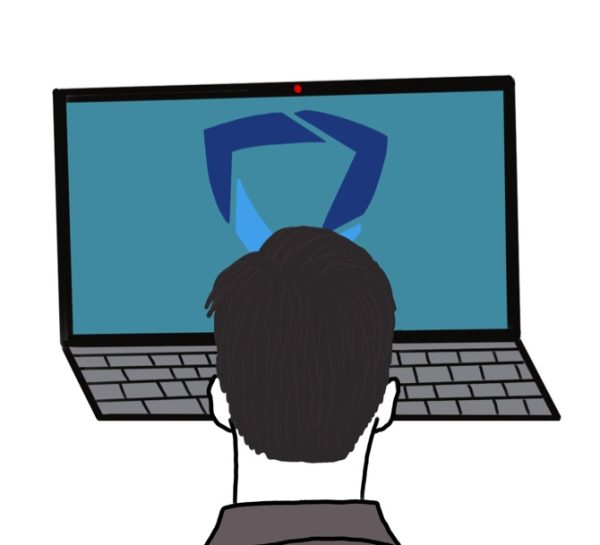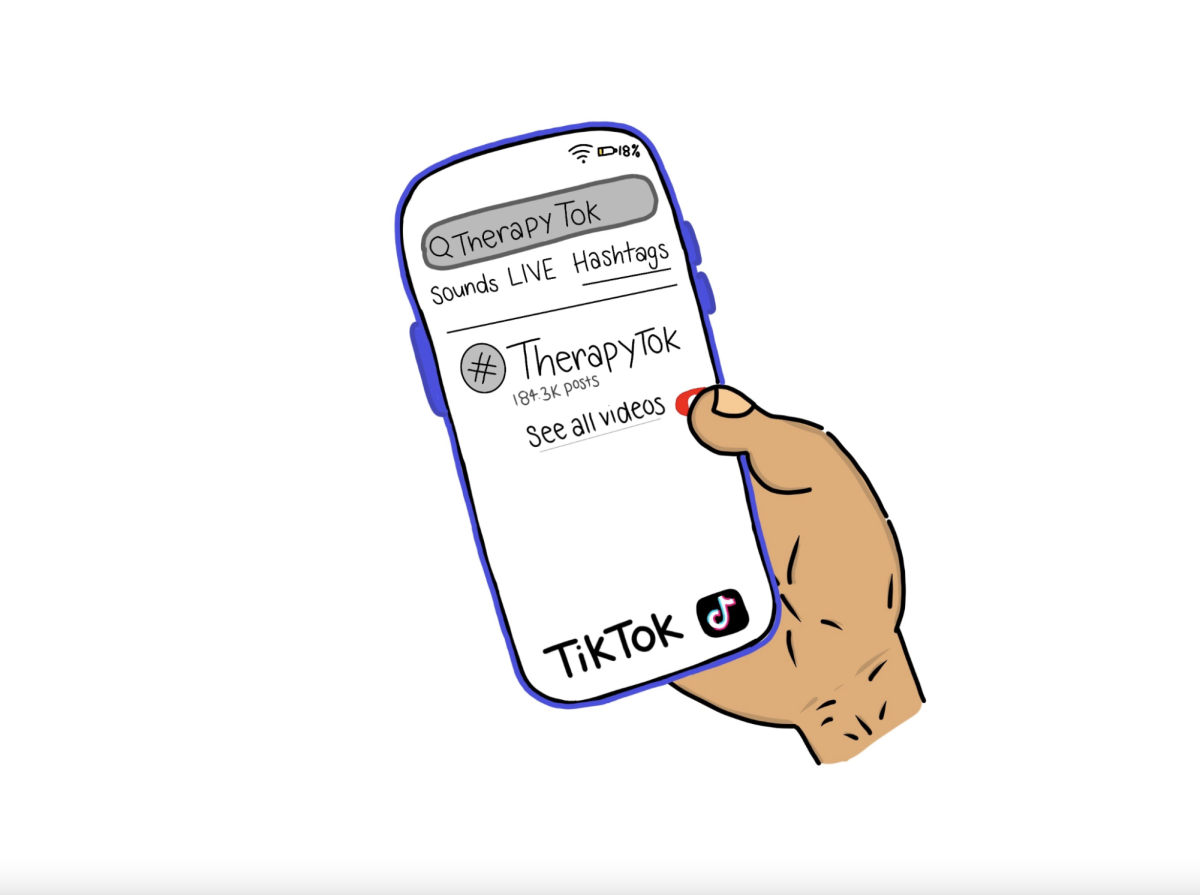On average, there are 80 children in foster care in Marin County at any given time. However, 33 percent of foster youth are placed outside of the county due to a lack of foster homes. This means the child’s entire routine and life is shifted; they must change schools, leave sports teams, their friends and any sense of normalcy.
Foster care within Marin plays a vital role in shaping the lives of children

and families. The foster care system is a critical safeguard for children in vulnerable situations, but the realities of these situations are far more complex than many realize. California has the highest number of foster care placements in the United States, with over 60,000 children currently in the system.
Children enter foster care for various reasons, with neglect being the most common. In 2022, neglect accounted for 62 percent of
placements, followed by parental drug abuse (33 percent), caretaker inability to cope — meaning a parent has become overly exhausted from taking care of their child and can no longer provide the correct care for either themselves or the child — (13 percent) and physical abuse (13 percent). Marin County Superior Court Criminal Law Judge Ahtossa Fullerton emphasizes that these issues often stem from deeper systemic challenges, such as wealth imbalance.
“Usually, it’s because [parents] don’t have access to services. They may need therapy, drug rehab or other forms of support,” Fullerton said.
Poverty and limited access to essential services such as mental healthcare and rehabilitation programs are significant drivers of foster care placements. Children raised in low socioeconomic households are five times more likely to experience maltreatment than their wealthier peers, weighing on the connection between poverty and foster care involvement.

Judge Fullerton also noted that many parents in the system are trapped in cycles of generational trauma, having been foster children themselves. She stresses the importance of these underlying issues to break the cycle.
“We need more therapy for people,” Fullerton said. “We need more opportunities to detox when people have drug issues or get to rehabilitation programs.”
Fullerton elaborated that some parents remain in denial about their issues and resist seeking help voluntarily.
“If they don’t engage willingly and can afford it, the court often intervenes, making it an open case and ordering participation. For those who cannot afford it, Child Protective Services (CPS) might step in to help cover costs. When parents are willing to engage with these services, they often reunite with their children. It’s when they resist getting better that it becomes a greater challenge,” Fullerton said.
She reflected on her job responsibilities through her experiences as a judge and attorney, describing the emotional toll of separating children from their parents. She emphasized how important and impactful making these decisions is, and that her priority is always the child.
“It’s one of the hardest parts of the job,” Fullerton said. “It’s not just about the legalities, it’s about the child’s well-being.”
The emotional trauma faced by children is an additional concern. Fullerton explained that child removal often involves CPS going to a home or school to physically take a child away.
“Sometimes it’s easy, with the parent and child cooperating. But other times, the CPS worker is literally pulling the child from the parent’s arms, creating a traumatic experience.

Despite these challenges, Fullerton acknowledges that Marin County’s foster care system benefits from relatively low caseloads for social workers, enabling more personalized care. She also highlights the amount of support Marin County foster children receive.
“In Marin, we do have a lot of resources, and organizations like the Marin County Foster Care Association are incredibly helpful,” Fullerton said.
Joanna Stott, Marketing and Events Manager at the Marin County Foster Care Association (MCFCA), highlights the nonprofit’s role in supporting foster children and their families. MCFCA raises over a million dollars annually to provide financial assistance and resources for foster families. One of their biggest fundraisers is Blues and Brews, which is held in October and typically raises about half a million dollars. Other events, like the family-focused danceathon in May, contribute additional funds, along with individual foundation donations and county support.
“It’s heartwarming to see schools, churches, and local businesses contribute toys and other resources to brighten the holidays for foster kids,” Stott said. “These are kids in our community, right? And it’s rewarding to provide a little brightness during a tough time.”
Ashley Hurd, Executive Director of Marin Foster Care Association and a foster parent herself for nine years, brings her personal perspective to the discussion.
“It truly takes a village to raise a child, and even more so with foster care, where the need for support is immense,” Hurd said.
Hurd emphasized the importance of making foster care a positive experience for children.
“Our goal is to ensure that these kids can participate in the same activities and opportunities as any other child in Marin. We want them to feel included, not different,” Hurd said. “We want them to do all the things that any other child in Marin would be doing — wearing the same shoes, living the same lives, without feeling different.”

Hurd and her husband’s parenting journey began after coming across a shocking statistic when their biological son turned two.
“We saw a press release from the county saying they needed more foster homes, and that 40 percent of our youth were going outside of our county because there weren’t homes here,” Hurd said. “We thought we could do this, and we could impact multiple kids’ lives by being foster parents.”
Over nine years, Hurd and her family have fostered nine children, often stepping into care for infants coming straight from the hospital. Each experience has brought its own set of challenges and rewards, but she emphasized that the emotional journey is often the most difficult part of fostering.
“The emotional piece is the hardest part,” Hurd said. “You get super attached and then have to say goodbye, but it’s possible to work
through it.” She explained that while letting go is never easy, the ability to support a child during a crucial time in their life makes the heartache worthwhile.
Despite the challenges, Hurd described fostering as a rewarding experience in a way her family hadn’t initially imagined.
“We didn’t think we’d see or talk to our kids after they left, but that’s been the opposite,” Hurd said. “We stay in touch with so many of them, and they’re still a part of our lives.”
For Hurd, fostering has not only been a way to help children in need but also a unique and beautiful way to grow her family. Beyond the relationships with the children, the experience has introduced her to a network of other foster and adoptive parents who share similar values and experiences.
“It’s an amazing community of foster and adoptive parents that we wouldn’t have known otherwise,” Hurd said.
Through fostering, Hurd and her family have built connections that continue to shape their lives in meaningful and lasting ways.
“Foster care looks a lot like you,” Hurd said. “It takes everyone — whether you donate, volunteer or become a foster parent. Every contribution makes a difference.”
As Marin County continues to navigate the complexities of foster care, the collective efforts of the community, nonprofits like MCFA and dedicated individuals like Fullerton, Stott and Hurd offer hope for children and families in Marin.







